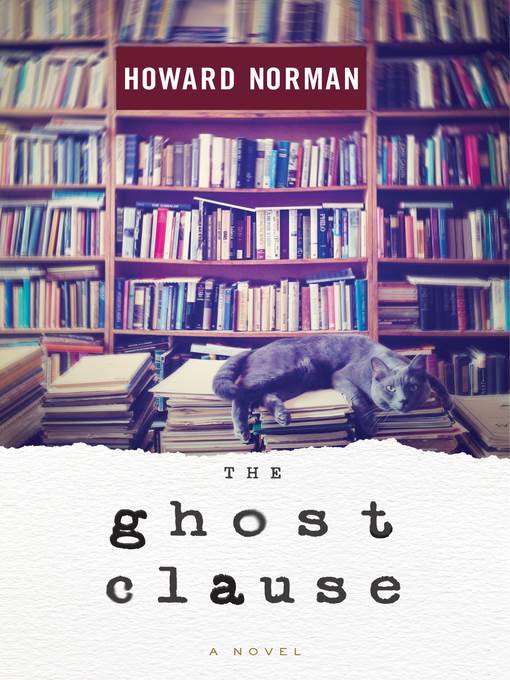
The Ghost Clause
کتاب های مرتبط
- اطلاعات
- نقد و بررسی
- دیدگاه کاربران
نقد و بررسی

April 1, 2019
This is the story of a Vermont farmhouse and the two couples who occupy it. The first is artist Lorca and novelist Simon, who is very much like the work's National Book Award-winning author Norman (The Northern Lights) but happens to be a ghost. As he narrates, Simon reflects on his life and career (he's too fond of making references to obscure writers) and observes the marriage of the second couple, investigator Zachary and literary academic Muriel, to whom Lorca has sold the house after Simon's death. Some of Zachary's work is revealed as Simon reads his files, but there's no real sleuthing here; the most prominent case involves a kidnapped neighbor child and a moth-obsessed savant. The book is heavy on atmosphere and character interaction that's not easily summarized. When Simon's postmortem journals are found by renovation carpenters and delivered to Lorca, she decides it's time for Simon to leave the house and the new couple to themselves and come with her, a now quiet partner. VERDICT Thoughtful, elegiac, a good book to read by the fireside with a snifter of bourbon. [See Prepub Alert, 1/23/19.]--Robert E. Brown, Oswego, NY
Copyright 2019 Library Journal, LLC Used with permission.

May 1, 2019
A young couple adjusts to life in a rural Vermont farmhouse and the specter of the novelist who once lived there. Norman's fiction (My Darling Detective, 2017, etc.) is death-stalked stuff: His novels are suffused with the ghosts of spouses and parents, murders around hotels and lighthouses, and downcast observations of the somber, foggy Northeast. Though nobody would confuse him for a horror writer, he has a keen eye for the way loss uneasily sticks with those left behind. This time he lets the dead do the talking. Simon, the narrator, is a novelist who died of a heart attack on a ferry in Nova Scotia and who's returned to his home in Vermont to observe its new occupants: Zachary, a private detective, and Muriel, a scholar of Japanese poetry. The two are suspicious of a strange presence; the alarm in their library keeps getting set off, a book by Wallace Stevens (that most metaphysical of modern poets) can't stay in one place, and the home's deed has a "ghost clause" that obligates the prior owner to buy back the home in case of a "malevolent presence." But the home is stressed enough already, as Zachary works on the case of a missing girl that's torn up the town and sends him down a series of false leads. This isn't a plot so much as a kind of atmosphere; Simon observes frustrations, losses, and elisions, from miscarriages to missed leads to his widow, Lorca, deep in mourning. Yet, like the poet Muriel studies, who tucks erotic parentheticals into her mordant poems, a little light slips into the story, resolving both the case of the missing girl and Simon's uneasy sense of place. What opens as a ghost story turns out to be something of a love story instead. Familiar turf for Norman's longtime readers, but he still has a knack for finding emotional resonances in muted, unlikely scenarios.
COPYRIGHT(2019) Kirkus Reviews, ALL RIGHTS RESERVED.

May 13, 2019
Norman (My Darling Detective) poignantly examines the trajectory of two marriages from the viewpoint of a dead writer. Recently deceased Simon Inescort haunts his Vermont farmhouse, which is purchased in the summer of 1994 by a young couple: Muriel, an English professor who just finished her dissertation on a Japanese poet, and her husband, Zachary, a private investigator looking into a local missing child case. Simon, surprised by his consciousness and corporeal abilities (he can pick up books and read them, for example) writes journals he hopes the couple will find, a commentary on their lives as he observes them, as well as a primer on life with his artist widow, Lorca, who befriends the couple. Simon constantly sets off the house alarm, but when the new owners check for evidence, they find nothing—though their cat, Epilogue, is onto him. Readers learn that Simon and Lorca were desperate to have a child but couldn’t, which strained their relationship; Zachary’s obsession with finding 10-year-old Corrine (an autistic savant obsessed with moths) overrides his marriage. Throughout, Simon infuses sharp observations with insightful ruminations about the joys of living, which are particularly heartrending coming from one who can no longer experience them. This is an astute, beautifully written novel.

May 1, 2019
The dead haunt the grieving in Norman's mysterious literary novels, making his shift to imaginative crime fiction with My Darling Detective (2017) a natural one. Here he takes an unfettered approach to detection as he portrays two couples anchored to a cozy 1845 Vermont farmhouse with a ghost clause in its deed protecting the buyer if a resident spirit is too disruptive. Narrator Simon, a writer struck dead by a heart attack at age 48, tries to be unobtrusive as he marvels over his unexpected ongoingness and watches his widow, Lorca, a painter, sell their home to young literature professor Muriel and private investigator Zachary. Funny bits about Simon, the cat, and the alarm system alternate with vivid and touching flashbacks to Lorca and Simon's life together, and Zachary's anxiety over a missing-child case. A paean to married love, creative endeavors, and compassion, and a delving look at love, loss, memory, and the afterlife in accord with Anne Tyler's The Beginner's Goodbye (2012), Norman's atmospheric, wise, and witty novel has the radiance, hiss, and snap of a hearth fire on a wintry night.(Reprinted with permission of Booklist, copyright 2019, American Library Association.)

























دیدگاه کاربران